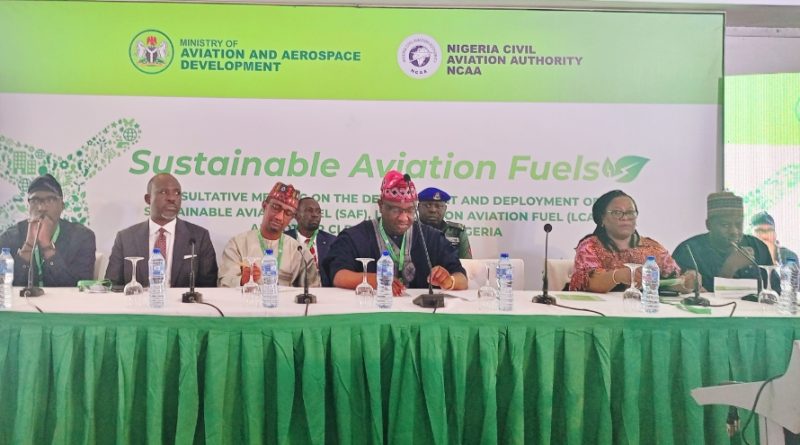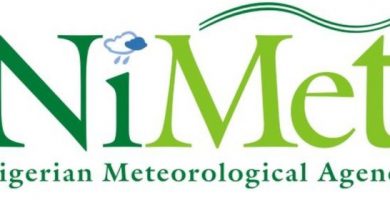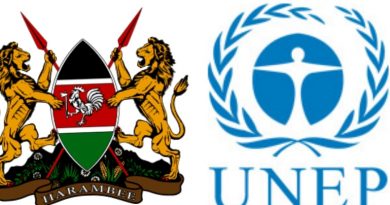Stakeholders deliberate on Sustainable Aviation Fuel, Low Carbon Available Fuel and other cleaner fuels in Nigeria.
... Aviation Minister says step only laudable, but necessary for airlines to be able to have competitive operating advantage
Oru Leonard
Policy makers, regulators, professionals, and industry stakeholders held a consultative meeting on the development and deployment of Sustainable Aviation Fuel (SAF), Low Carbon Aviation Fuel (LCAF) and Aviation Cleaner Energies on Wednesday, October 18, 2023.
In his opening remarks, the Minister of Aviation and Aerospace Development, Hon Festus Keyamo noted that the step is not only laudable, but necessary for our airlines to be able to have competitive operating advantage not just in our sub-region, but in the continent.
According to him, “This meeting is therefore important not just for coordination and collaboration among all stakeholders in the aviation and energy sectors, including government agencies, industry players, civil society, academia, and international partners, but also to raise public awareness and education on the benefits and opportunities of cleaner energy transition for aviation, as well as the challenges and risks of inaction. This collaboration is the only way to facilitate the development and deployment of aviation cleaner energies in Nigeria and ensure that the country is not left behind in aviation environmental protection initiatives.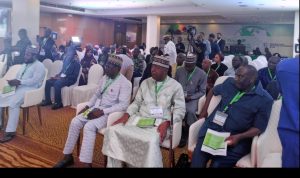
“A number of technical analyses done revealed that Sustainable Aviation Fuel (SAF) has the greatest potential to reduce CO2 emissions from International Aviation. This further underscores the importance of this consultative meeting to aviation. The step that is being taken here today, shows our commitment in meeting Nigeria’s pledge under the Paris Agreement, the Nationally Determined Contributions (NDCs) and the United Nations Sustainable Development Goals (SDGs). Nigeria has played an active role in supporting ICAO’s efforts in reducing carbon emissions, and our decisions today would encourage the rest of our continent on transition to a low-carbon economy.”
Keyamo reaffirmed that the administration has placed aviation at the center of its National Economic Development. “Our collective efforts will further enhance an enabling environment for renewable or waste-derived aviation fuels that meets global sustainability criteria”, he added.
Speaking on behalf of Airline Operators of Nigeria, (AON), Capt. Roland Iyayi noted that Nigeria currently stands the better chance to drive alternative fuel for the aviation sector through the exploration of palm oil.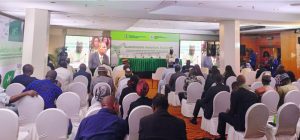
Iyayi said, “Airline operators have quietly been following developments in the sector, especially conversations on sustainable aviation fuel and it is a huge opportunity for Nigeria because the major component for sustainable aviation fuel is palm oil.
“The technology is currently being developed at a very high rate in UK and Nigeria has a comparative advantage because we already have the raw materials in abundance,”
He noted that aviation fuel constitutes 40 per cent operating cost for every airline and with the product at 1,000 per litre, it is no longer sustainable.
He added: “If the NNPC champions sustainable aviation fuel using palm oil, it will give Nigeria comparative advantage and the bigger picture is that the economy will grow and it will remove import dependency and create jobs. So, for the airline operators, we say there is a technology available and there is raw material available so we can use that as advantage to lead the world in alternative aviation fuel,”
Stakeholders in the Aviation Sector agreed on the urgent need to find alternatives for aviation fuel considering the high cost of importation put at one thousand naira per litre.
Speaking, the Director General of the Nigeria Civil Aviation Authority, Capt. Musa Nuhu urged all sectors in the country to unite a come up with a common national policy on aviation, low carbon emission because there will be conflict and responsibility overlap when different agencies work in isolation.
Present also was the Director General of the Nigerian Meteorological Agency (NiMet), who gave called on stakeholders to also take urge steps to mitigate the devastating effect of ecological damage that arise in the aviation sector.

